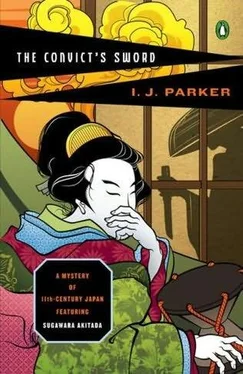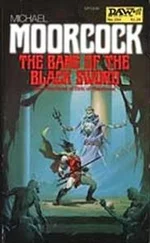I Parker - The Convict's sword
Здесь есть возможность читать онлайн «I Parker - The Convict's sword» весь текст электронной книги совершенно бесплатно (целиком полную версию без сокращений). В некоторых случаях можно слушать аудио, скачать через торрент в формате fb2 и присутствует краткое содержание. Жанр: Исторический детектив, на английском языке. Описание произведения, (предисловие) а так же отзывы посетителей доступны на портале библиотеки ЛибКат.
- Название:The Convict's sword
- Автор:
- Жанр:
- Год:неизвестен
- ISBN:нет данных
- Рейтинг книги:4 / 5. Голосов: 1
-
Избранное:Добавить в избранное
- Отзывы:
-
Ваша оценка:
- 80
- 1
- 2
- 3
- 4
- 5
The Convict's sword: краткое содержание, описание и аннотация
Предлагаем к чтению аннотацию, описание, краткое содержание или предисловие (зависит от того, что написал сам автор книги «The Convict's sword»). Если вы не нашли необходимую информацию о книге — напишите в комментариях, мы постараемся отыскать её.
The Convict's sword — читать онлайн бесплатно полную книгу (весь текст) целиком
Ниже представлен текст книги, разбитый по страницам. Система сохранения места последней прочитанной страницы, позволяет с удобством читать онлайн бесплатно книгу «The Convict's sword», без необходимости каждый раз заново искать на чём Вы остановились. Поставьте закладку, и сможете в любой момент перейти на страницу, на которой закончили чтение.
Интервал:
Закладка:
There was nothing for him to say or do. Decisions about Yori’s care were in the hands of others. Tamako was white-faced and determined, her comments to Akitada brief and cold. Seimei worked silently. Neither seemed to need any sleep. They remained with Yori day and night, while Akitada roamed the house and the garden, periodically passing through the sick-room to gaze helplessly at his writhing child. He kept hoping for a private moment when he might touch and hold Yori, perhaps to make him more comfortable, or to ease his misery by telling him stories, but Tamako’s hostile back seemed forever to interpose itself between him and his son.
Later, much later, he would blame himself for not ordering everyone out of the room, for not easing the boy’s fever and his agonizing thirst, but at the time he was so torn with guilt and uncertainty that his will had become paralyzed. Mostly he kept fear at bay with restless and pointless activities. He rearranged his books. He inspected the storehouse. He got out some tools and trimmed overgrown shrubs in the garden.
The telltale spots appeared and spread. Akitada reminded himself that many people survived, and that Yori had always been a strong and healthy boy, but the ice-cold lump in his stomach did not melt. That day he did an extraordinary thing and knelt in front of the household altar to pray to the small Buddha figurine. Since he did not believe, this effort came particularly hard, but by then his fear had grown too great, and he prostrated himself before the Buddha with the fervor of an ascetic. He offered his own for Yori’s life. The next morning Yori seemed better. The fever subsided and he rested more quietly for the first time in many days. But the rash festered and spread, from his face to his arms and chest, and then over his whole body. The child was in agony, unable to speak or swallow because the blisters and sores had invaded his mouth and throat. Akitada’s beautiful son became a swollen, suppurating monstrosity, and Akitada took the small Buddha statue from the altar and smashed it.
During this period, Akitada felt a great need to be with his son, yet could not bear to look at him. And so he would come, cast furtive glances in hopes of improvement, then sit miserably by for a few minutes as Seimei and Tamako, and sometimes the doctor, tended to the moaning child, only to leave again when his stomach twisted at the suffering. He was afraid now to touch his son, for even the small hands were grotesquely swollen and disfigured. The slightest contact caused him pain. He looked at Tamako and was ashamed. Her face was a weary mask, her lower lip swollen and bloodied from biting it whenever she had to handle the screaming Yori, yet she persisted. He marveled at her strength and his own weakness.
His inadequacy made him very humble. He asked Tamako if he might read to Yori. She nodded without looking at him. They had exchanged so few words since Yori’s illness began that they were like ill-met strangers. Akitada read to Yori without comprehending the stories and without response from the child. When Yori was awake, he stared with glazed eyes at the ceiling and whimpered a little now and then, but most of the time he seemed asleep or semicomatose. Akitada would pause and gaze at him, wondering if he was seeing death, and drop the book to rush from the room. Later it occurred to him that music might be more soothing. He brought his flute and sat, playing tune after tune, always ending with a lullaby Yori used to love as an infant, convincing himself that the sound eased the pain and put him to sleep.
The moments of hope were particularly dreadful: If the child had a more restful night, or took a few sips of rice gruel, or if the doctor did not express any unease, Akitada was filled with irrational joy. In fact, the doctor was a ceaselessly optimistic fellow whose many visits Akitada gladly paid for because they made him think-however briefly-that Yori was improving. But each hope was crushed, and each time death was closer and more certain, until even the most credulous father must abandon false expectations-and Akitada was not a credulous man.
Yori died quietly. He stopped crying, moaning, even whimpering, and became very still. Akitada and Tamako were in the room but did not know when he stopped breathing, having convinced themselves that he was only asleep. When Seimei told them, Akitada felt the pain slice through him so sharply that he gasped. He looked at Tamako and extended his hand-to comfort her or to be comforted, he did not know which. But Tamako flung herself across the small corpse and burst into a long wail. “Oh, oh, oh…”-just that, without cease-“oh, oh, oh. ..” Akitada lifted her from the dead child. He held her tightly, hoping that by holding on to each other they might find relief, but she fought free and ran from the room, still wailing in her grief.
Akitada neither wailed nor wept. He knew what must be done. He had arranged funerals before. Because of the epidemic, he could get only two elderly monks for the sutra readings and chants. The temple was apologetic: They had too many funerals to attend, and a number of their younger members had succumbed to the disease themselves. The yin-yang master designated the proper day, and casket, bearers, and materials for the pyre were purchased at enormous expense.
The family accompanied the small casket to Toribeno. The cremation ground lay on a wide plain southeast of the capital at the foot of the eastern mountains. They left the Sugawara residence at dawn and walked into the rising sun. Only Tamako rode in a sedan chair, borne by two villainous-looking men who had demanded a ransom in silver for the service. When they reached the outskirts of the city, the sun dimmed behind a heavy haze of grayish-white smoke which rose above Mount Toribe and spread like a blanket over the plain.
They crossed the river, and turned southward along its banks. The riverbed was partially exposed by the long drought; abandoned corpses lay there, and the remnants of small funeral pyres, some with only half-consumed corpses amongst the ashes. Most people could not afford funerals like Yori’s, especially not if they had lost several family members to the disease. Unpleasantly well-nourished dogs roamed about, baring their teeth at them as they passed, and a sickly smell drifted on the morning breeze.
Theirs was a very small cortege: just Yori’s parents, Seimei, and Tora. The others had stayed behind to guard the house in these uncertain times. The cook had taken to her heels days before, the moment she realized that the young master had smallpox.
They soon joined other funeral processions, some more elaborate, some even smaller than theirs. They passed several temples, all crowded and conducting services. Ahead stretched the thousands of stone grave markers of the capital’s cemetery.
Akitada saw all this with mindless detachment. Someone directed them to their site; someone else relieved them of their precious burden. It was placed on the pyre-a generous one, since Akitada had paid a huge bribe to the superintendent of the cemetery. The same two aged monks quavered their chants, while a heavily veiled Tamako placed Yori’s small possessions on the pyre: the lacquered sword Akitada had bought him for his New Year’s birthday, the book from which Tamako had read his favorite stories of legendary heroes, Seimei’s copy book full of strange Chinese characters, and some filled rice cakes Tora had searched the city for.
And then Akitada lit the wood with a burning pine torch.
They watched the flames catch, rise into the morning sky, watched the new white smoke ascend to join the drifting haze above-the smoke many believed to be the soul of the dead bound for the Western Paradise.
But Yori was too young to know what road to take. The heaviest burden for a parent is to know his small child is alone and helpless. His failure as a father gnawed at Akitada and he felt as hollow as a dead tree.
Читать дальшеИнтервал:
Закладка:
Похожие книги на «The Convict's sword»
Представляем Вашему вниманию похожие книги на «The Convict's sword» списком для выбора. Мы отобрали схожую по названию и смыслу литературу в надежде предоставить читателям больше вариантов отыскать новые, интересные, ещё непрочитанные произведения.
Обсуждение, отзывы о книге «The Convict's sword» и просто собственные мнения читателей. Оставьте ваши комментарии, напишите, что Вы думаете о произведении, его смысле или главных героях. Укажите что конкретно понравилось, а что нет, и почему Вы так считаете.












